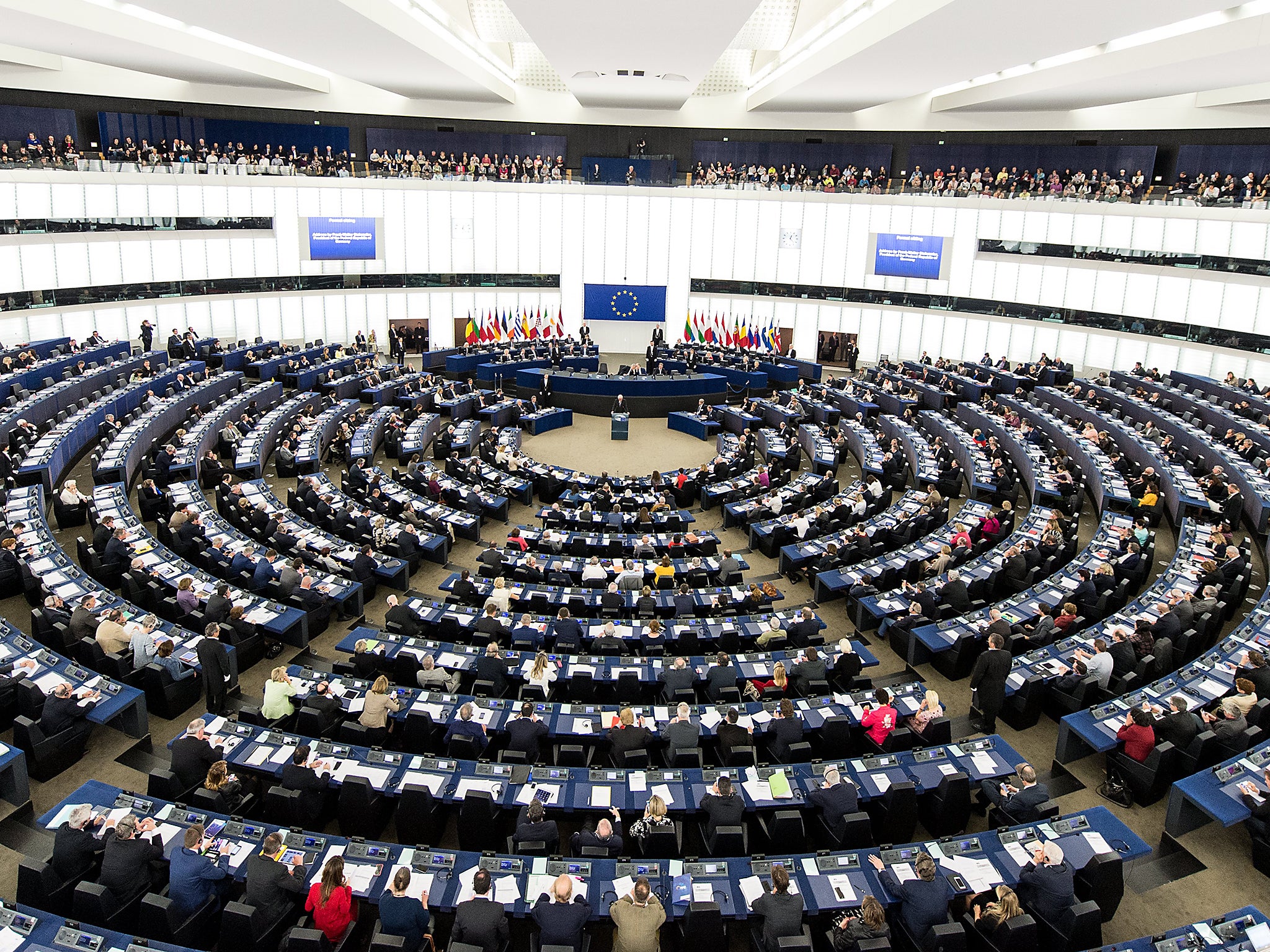Your support helps us to tell the story
From reproductive rights to climate change to Big Tech, The Independent is on the ground when the story is developing. Whether it's investigating the financials of Elon Musk's pro-Trump PAC or producing our latest documentary, 'The A Word', which shines a light on the American women fighting for reproductive rights, we know how important it is to parse out the facts from the messaging.
At such a critical moment in US history, we need reporters on the ground. Your donation allows us to keep sending journalists to speak to both sides of the story.
The Independent is trusted by Americans across the entire political spectrum. And unlike many other quality news outlets, we choose not to lock Americans out of our reporting and analysis with paywalls. We believe quality journalism should be available to everyone, paid for by those who can afford it.
Your support makes all the difference.The European Parliament seats currently occupied by British MEPs could be given to pan-EU representatives elected by all of the EU’s citizens, under a new post-Brexit plan.
French president Emmanuel Macron and the Italian government have both backed the blueprint, which would see Britain’s 73 seats re-purposed in aide of European integration, in an ironic twist.
One aim of the plan, which would have to be agreed by the European Parliament itself and member states, would be the cultivation of pan-EU political parties that stood across member state boundaries.
The UK currently elects just under 10 per cent of the Parliament’s MEPs and these will be up for grabs once Britain leaves the EU in March 2019. Other alternative uses for the seats are removing them to reduce the size of the 750-member chamber, or re-allocating them to increase the size of other countries’ delegations.
Though parts of the EU’s institutions are democratic – including the election of MEPs and the election of national governments that form the European Council – there are currently no EU-wide popular elections where all of the blocs 500 million citizens can vote for the same candidates.
As it stands, MEPs are all sent to Brussels and Strasbourg as part of a delegation from a specific EU member state; each state is responsible for how they elect those MEPs.
Though MEPs usually sit as part of pan-EU political parties and groups in the Parliament, they are ultimately members their home state’s political party, which is usually itself a member of the Europe-wide group.
French officials told MEPs last week that the proposal would “increase the visibility of trans-European parties in public opinion and stimulate the campaign”, the Financial Times reported.
The officials added: “At a time when the UK is leaving the union, such a reform will also send a message of unity and confidence in the European project.”
Italy’s EU minister Sandro Gozi told the FT: “If we want to build European democracy, we have to stimulate what’s lacking: transnational politics in Europe and real European political parties.”
A European Parliament spokesperson told The Independent that the current distribution seats in the body was always planned to be temporary.
New official proposals to change how MEPs are allocated in the parliament will be drawn up in a report commissioned by the EP Constitutional Affairs Committee. That report is expected to be made public later this month.

Join our commenting forum
Join thought-provoking conversations, follow other Independent readers and see their replies
Comments